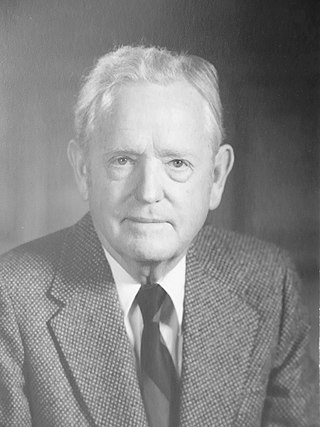Related Research Articles
In ontology, the theory of categories concerns itself with the categories of being: the highest genera or kinds of entities according to Amie Thomasson. To investigate the categories of being, or simply categories, is to determine the most fundamental and the broadest classes of entities. A distinction between such categories, in making the categories or applying them, is called an ontological distinction. Various systems of categories have been proposed, they often include categories for substances, properties, relations, states of affairs or events. A representative question within the theory of categories might articulate itself, for example, in a query like, "Are universals prior to particulars?"
Metaphysics is the branch of philosophy that studies the fundamental nature of reality. This includes the first principles of: being or existence, identity, change, space and time, cause and effect, necessity, actuality, and possibility.

Monism attributes oneness or singleness to a concept, such as to existence. Various kinds of monism can be distinguished:
Neutral monism is an umbrella term for a class of metaphysical theories in the philosophy of mind, concerning the relation of mind to matter. These theories take the fundamental nature of reality to be neither mental nor physical; in other words it is "neutral".

In metaphysics, ontology is the philosophical study of being. It investigates what types of entities exist, how they are grouped into categories, and how they are related to one another on the most fundamental level. Ontologists often try to determine what the categories or highest kinds are and how they form a system of categories that encompasses the classification of all entities. Commonly proposed categories include substances, properties, relations, states of affairs, and events. These categories are characterized by fundamental ontological concepts, including particularity and universality, abstractness and concreteness, or possibility and necessity. Of special interest is the concept of ontological dependence, which determines whether the entities of a category exist on the most fundamental level. Disagreements within ontology are often about whether entities belonging to a certain category exist and, if so, how they are related to other entities.
Substance theory, or substance–attribute theory, is an ontological theory positing that objects are constituted each by a substance and properties borne by the substance but distinct from it. In this role, a substance can be referred to as a substratum or a thing-in-itself. Substances are particulars that are ontologically independent: they are able to exist all by themselves. Another defining feature often attributed to substances is their ability to undergo changes. Changes involve something existing before, during and after the change. They can be described in terms of a persisting substance gaining or losing properties. Attributes or properties, on the other hand, are entities that can be exemplified by substances. Properties characterize their bearers; they express what their bearer is like.
Edward Jonathan Lowe, usually cited as E. J. Lowe but known personally as Jonathan Lowe, was a British philosopher and academic. He was Professor of Philosophy at Durham University.

Omnibenevolence is defined by the Oxford English Dictionary as "unlimited or infinite benevolence". Some philosophers have argued that it is impossible, or at least improbable, for a deity to exhibit such a property alongside omniscience and omnipotence, as a result of the problem of evil. However, some philosophers, such as Alvin Plantinga, argue the plausibility of co-existence.
Essence is a polysemic term, having various meanings and uses. It is used in philosophy and theology as a designation for the property or set of properties or attributes that make an entity or substance what it fundamentally is, and which it has by necessity, and without which it loses its identity. Essence is contrasted with accident: a property or attribute the entity or substance has contingently, without which the substance can still retain its identity.
In logic and philosophy, a property is a characteristic of an object; a red object is said to have the property of redness. The property may be considered a form of object in its own right, able to possess other properties. A property, however, differs from individual objects in that it may be instantiated, and often in more than one object. It differs from the logical/mathematical concept of class by not having any concept of extensionality, and from the philosophical concept of class in that a property is considered to be distinct from the objects which possess it. Understanding how different individual entities can in some sense have some of the same properties is the basis of the problem of universals.
Peter van Inwagen is an American analytic philosopher and the John Cardinal O'Hara Professor of Philosophy at the University of Notre Dame. He is also a research professor of philosophy at Duke University each spring. He previously taught at Syracuse University, earning his PhD from the University of Rochester in 1969 under the direction of Richard Taylor. Van Inwagen is one of the leading figures in contemporary metaphysics, philosophy of religion, and philosophy of action. He was the president of the Society of Christian Philosophers from 2010 to 2013.
Hypokeimenon, later often material substratum, is a term in metaphysics which literally means the "underlying thing".
Meta-ontology is the study of the field of inquiry known as Ontology. The goal of meta-ontology is to clarify what ontology is about and how to interpret the meaning of ontological claims. Different meta-ontological theories disagree on what the goal of ontology is and whether a given issue or theory lies within the scope of ontology. There is no universal agreement whether meta-ontology is a separate field of inquiry besides ontology or whether it is just one branch of ontology.
The following outline is provided as an overview of and topical guide to metaphysics:

In scholastic metaphysics, a formal distinction is a distinction intermediate between what is merely conceptual, and what is fully real or mind-independent--a logical distinction. It was made by some realist philosophers of the Scholastic period in the thirteenth century, and particularly by Duns Scotus.
Ousia is a philosophical and theological term, originally used in ancient Greek philosophy, then later in Christian theology. It was used by various ancient Greek philosophers, like Plato and Aristotle, as a primary designation for philosophical concepts of essence or substance. In contemporary philosophy, it is analogous to English concepts of being and ontic. In Christian theology, the concept of θεία ουσία is one of the most important doctrinal concepts, central to the development of trinitarian doctrine.

Relations are ways in which several entities stand to each other. They usually connect distinct entities but some associate an entity with itself. The adicity of a relation is the number of entities it connects. The direction of a relation is the order in which the elements are related to each other. The converse of a relation carries the same information and has the opposite direction, like the contrast between "two is less than five" and "five is greater than two". Both relations and properties express features in reality with a key difference being that relations apply to several entities while properties belong to a single entity.

Donald Cary Williams, usually cited as D. C. Williams, was an American philosopher and a professor at both the University of California Los Angeles and at Harvard University.
Stephen Houlgate is a British philosopher and Professor of Philosophy at the University of Warwick. He is known for his works on Hegel, Heidegger and Derrida's thought.
Donald Paul Rutherford is a Canadian philosopher and a professor of philosophy at the University of California, San Diego. He is known for his research on early modern philosophy. Rutherford is a former president of Leibniz Society of North America (2010-14) and a winner of its Essay Prize (1992). He is an editor of Oxford Studies in Early Modern Philosophy.
References
- ↑ Lowe, E. J. (1995). "Review of Haecceity: An Ontological Essay". Mind. 104 (413): 202–205. ISSN 0026-4423.
- ↑ Moser, Paul K. (2004). "The Divine Attributes:". Faith and Philosophy. 21 (1): 116–119. doi:10.5840/faithphil200421120.
- ↑ Mackie, Penelope (2000). "Review of Substance among Other Categories". Mind. 109 (433): 149–152. ISSN 0026-4423.
- ↑ Shalkowski, Scott A. (1998). "Review of Substance: Its Nature and Existence". Mind. 107 (428): 886–889. ISSN 0026-4423.